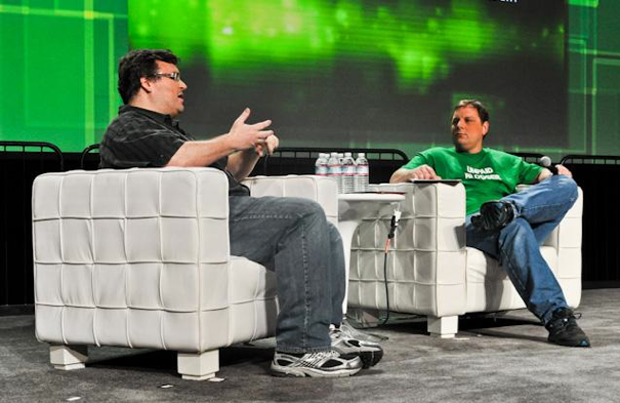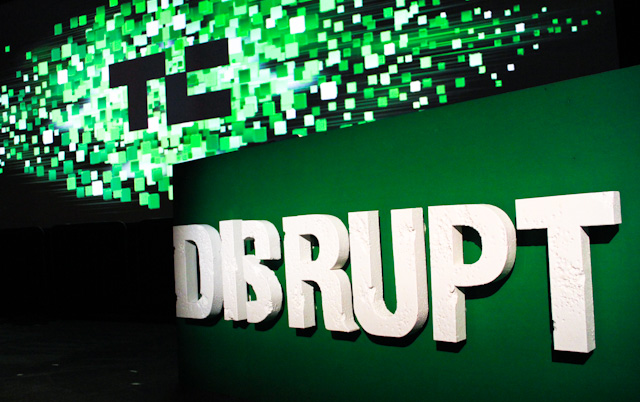Last week, TriplePointers Molly and Ashley mingled with entrepreneurs and investors at TechCrunch Disrupt SF. The energy at the SF Design Center Concourse was high as startup teams were enthusiastic about demoing their products to anyone that would pass by. The biggest competitors were showcased in the Startup Battlefield, the conference’s main event. Shaker, a Facebook app that brings social hangouts in clubs/bars/parks to the web, took home this year’s Disrupt Cup. However, the most important prize for founders was walking away with new relationships with investors and funding opportunities. TriplePoint was there to check out upcoming trends from the startups and also soak in all the information from experienced panelists including Kevin Rose, Peter Thiel, and Reid Hoffman. Here’s a recap of what we learned and observed:
Advice for Entrepreneurs from Top Investors
Reid Hoffman, Greylock Partners: With early stage startups, having a “killer entrepreneur” is crucial because the product will often change.
Vinod Khosla, Khosla Ventures: In innovation, you have to throw away all research and science, not even experts can predict the future of the market.
Doug Leone, Sequoia Capital: Sequoia looks for entrepreneurs who can clearly articulate the future (market view) and who are solving a personal need with their product or service. Entrepreneurs should get started in the Bay Area but once business gets big, the Bay Area holds too much competition for talent.
Dave McClure, Angel Investor: The 5 things that help determine valuation – market, product, team, customer, and revenue.

What’s next in tech?
A number of angel investors agreed that the Internet is still in its early stages, so there is room for lots of innovation. Ron Conway asserted that “collaborative consumption” is the current trend with businesses such as Airbnb and Disrupt finalist, Farmigo. Vinod Khosla has a “Cool Dozen” of hot trends including: Data reduction, large data, apps that tap emotion (ie. Foodspotting), education, health, and utility. He explained utility as businesses that empower people, such as democratizing publishing with tools like Storify. No matter which direction the industry turns, investors still agreed that Silicon Valley is still the #1 place to start a company.
The Future of TechCrunch
The controversy over TechCrunch’s editorial independence and Mike Arrington’s future with TechCrunch raged on during the conference. Fortunately, the startups still had their time in the spotlight without too much distraction. This conference may have signified an ending to the “Arrington era”, but TechCrunch will still prevail as the leading tech industry publication. TechCrunch as a publication won’t change much but the team has lost some unique characters, Mike Arrington and Paul Carr (who served as whimsical Startup Battlefield moderator). There is no doubt Erick Schonfeld will do a responsible job as the new Editor-in-Chief. Regardless of what actually happened behind TechCrunch walls, the unprecedented attendance at this year’s Disrupt SF was a testament to the publication’s immense growth in the past 6 years. TechCrunch has forged a strong influence in the tech industry that will only continue to deepen.

